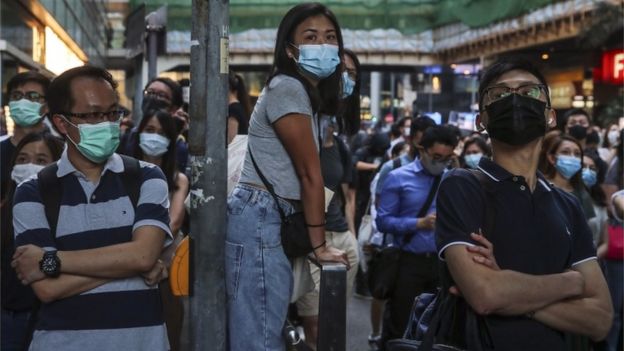Thousands stage protest to defy face mask ban in Hong Kong
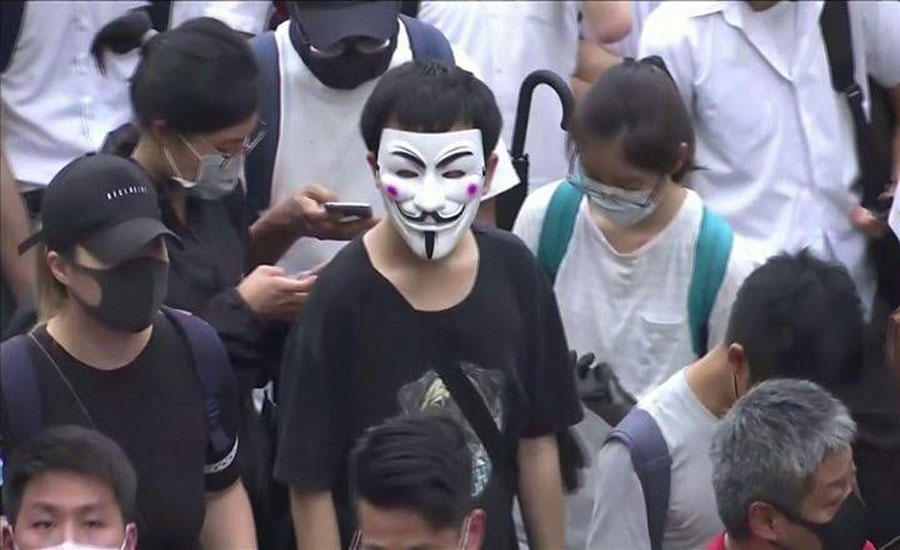
HONG KONG - Thousands of pro-democracy activists have joined unplanned protests in Hong Kong, that has literally turned to be a battle ground for the last several months, after the territory's government announced a face mask ban, which came into effect at midnight (16:00 GMT).
Chief executive Carrie Lam invoked a colonial-era emergency law in a bid to quell months of anti-government unrest. The ban comes after an escalation of violence during protests on 1 October, when an officer shot a demonstrator. Reports on Friday said a 14-year-old had been shot in the leg. He is reportedly being treated at Tuen Mun hospital and is in a serious condition. A police statement published by the South China Morning Post confirmed an officer "fired one shot as his life was under serious threat" after being attacked by a large group of protesters, including with petrol bombs. The statement does not however say if anyone was hit. The demonstrations have now died down throughout most of the territory, although there are still pockets of unrest.What happened on Friday?
Protests erupted immediately after the ban was announced. Many left work early to join the spontaneous demonstrations. Some furious protesters blocked roads, torched Chinese flags and vandalised stations and businesses, as police fired rounds of tear gas. The territory's Mass Transit Railway (MTR) announced a full service suspension of all trains, which will continue on Saturday morning until an assessment can be carried out. A spokesman told the BBC this was due to vandalism and attacks on staff. Images showed fires lit at stations, and reports suggest a train was set ablaze. Many Hong Kongers were forced to walk home amid the unrest.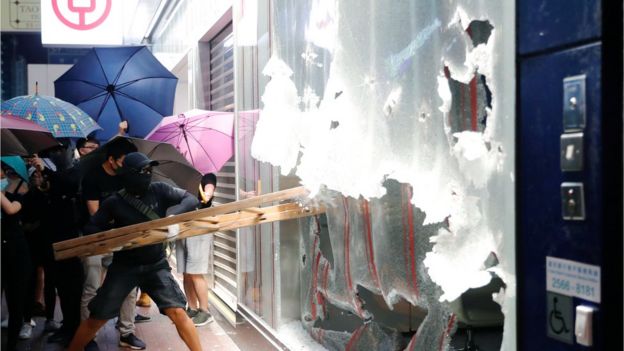
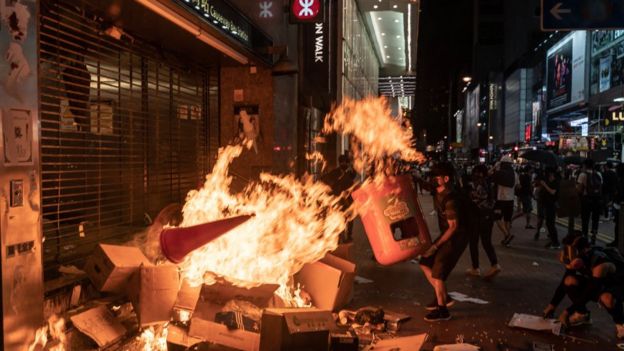
What's been the reaction to the ban?
Observers say the regulation will be hard to enforce and hugely controversial: critics have warned the mask ban could be the first in a series of "draconian" measures. "This is a watershed. This is a Rubicon," pro-democracy lawmaker Claudia Mo told news agency AFP. "And I'm worried this could be just a starter. More draconian bans in the name of law could be lurking around the corner." The announcement has also prompted reaction from further afield, with Marta Hurtado, the United Nations human rights spokeswoman, noting at a news conference in Geneva that "any restriction must have a basis in law and be proportionate and as least intrusive as possible". UK Foreign Secretary Dominic Raab, meanwhile, has said "political dialogue is the only way to resolve the situation".Where does the ban apply?
The ban will apply for approved and unapproved public assemblies - rallies and marches - as well as in unlawful assemblies and riots. The ban covers all kinds of facial covering, including face paint. Protesters have increasingly worn masks for a number of reasons, including to conceal their identities - from employers, parents and, in some cases, police - and to protect themselves from tear gas.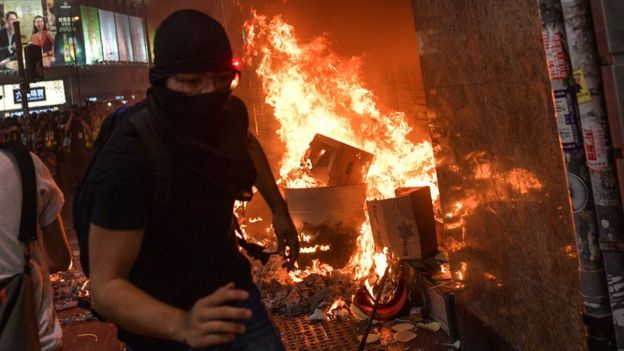
What is the Emergency Regulations Ordinance?
The legislation invoked by Ms Lam, called the Emergency Regulations Ordinance, dates to 1922 and has not been used in more than 50 years. It enables the chief executive to bypass the normal legislative process, where bills have to go through the city's parliament, the Legislative Council.